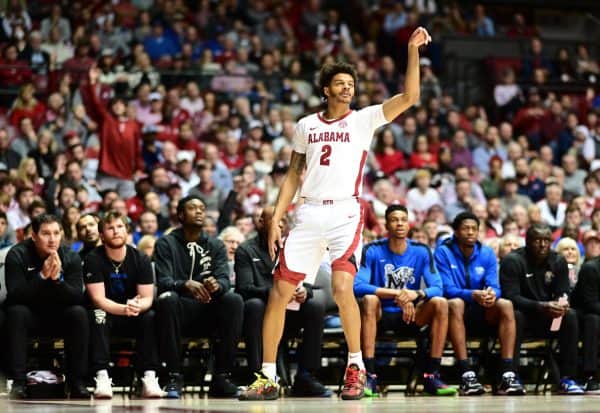Q&A: executive vice president candidate Elizabeth Prophet
February 27, 2023
Elizabeth Prophet is a junior majoring in social work who currently serves as a senator for the School of Social Work.
Q: How did you get involved with SGA?
A: “Okay, so I got involved with SGA last year; I decided to run for the social work spot. And so I really made the decision today before the deadline. After the urge of a friend, I wasn’t even in SGA, before that I never did First Year Council, I just was really after serving as the president of the undergraduate social work organization, I really felt connected to my college and really just wanted to bring social work back into SGA. So I just decided to run and it worked out perfect.”
Q: What made you want to run for this position?
A: “That’s a big one. I think the primary reason is that it connects to why I did it in the first place, I realized that students on campus, I don’t know a lot about SGA. They don’t feel connected to SGA. And they can’t see what we’re doing for them, because I don’t think the SGA is doing enough for students. And so in order to, in order to kind of give back to students, I was really just wanting to run because I want students to care about SGA. I want them to feel like they’re getting something out of it that this isn’t just social media posts, and cute buttons every year, I wanted to run because students need to feel connected to campus decision-making. And SGA has the best opportunity for students to do that. So I wanted to give students a voice, I want to encourage them to be more involved. And I want to advocate for what students want to actually do something and not just go through the same old election week, you know, kind of jumble up their social media pages and disappear. I wanted to actually make a real impact on this campus.”
Q: What’s the biggest problem you see on campus?
A: “Apathy, for sure. Students don’t care about SGA. And I understand exactly why they don’t. We don’t give them enough reasons to care. They feel frustrated, they don’t feel connected. They don’t feel like they have a voice in these elections, that their needs are going unmet, and that we just push thousands of dollars around every year without actually enhancing their student experience. So our biggest issue is not students, it’s not even SGA. It’s the fact that SGA has fostered an environment that’s created an apathy on campus where students don’t want to be involved anymore. No one feels optimistic about the future of SGA. And what we’re doing. And so in order to overcome that issue, I want to like I said, bring students back into SGA and show them that I really do want to make change. I’m not going to, I’m not in this for making promises I can’t keep; we have a limited budget. I’m not going to promise students something I can’t upkeep but I can promise them that I will do my best to fight for every need and every issue that they see on this campus.”
Q: How do you plan on increasing SGA transparency?
A: “Okay, so this is a big platform point for me, so I ran on transparency last year, because I think in order to combat that apathy, we have to show students that they can trust us. And so part of that, as your next executive vice president, I would make sure to make my meeting calendar and initiative list public. So students can see, first of all, am I meeting with student organizations? Which ones am I meeting with? Which ones am I not meeting with? My initiative list, what do I want to do? Am I actually doing that for you? This way, students can kind of hold me accountable to the promise I made to meet with student organizations, and to actually get things done. So I think that by making sure the meeting calendar…was public, it just allows students to hold me accountable. I also would just make sure that the student body is generally aware of the entire executive councils initiative list. So being sure that we’re reaching out to student organizations beyond an executive vice president role making sure they know what is the president doing, what is the VP of student affairs doing? What is SGA doing in general for you every day? So I want to make sure that of course, you’ve had that opportunity. And of course, I will, of course, cooperate with any requests from student media. I’ve done so in this past year. And I think that even though I won’t be voting on things and writing legislation, I’ve made my voting record public this past year, because I do think that students need to know exactly what their elected officials are doing. So basically, I would just make sure that students can see what I’m doing, hold me accountable for what I’m not, and give them an opportunity to have an anonymous complaint form or recommendation form that they can, you know, give me feedback, give the SGA feedback on what we’re doing for them.”
Q: What is your number one goal with this position?
A: “I have two — I have one general one, a sentiment and then a tangible action. So the general sentiment: I want students to care, I want them to be engaged in SGA. I want them to feel like they have students who care about them, and will advocate for them in every situation, tangibly. I want to ensure that students have access to free counseling center services. So I’m currently working on an initiative now and Senate. I don’t know if it’ll get through in time before my term ends, but…I will pledge my $3,000 stipend as executive vice president to this Counseling Center Initiative, meaning that 200 students will be able to get one free counseling center session from that salary alone. So hopefully, this will encourage the University to call and make sure that all students have access to free counseling center services, because right now it’s a $15 fee. And that’s the same as the whole operating costs of the Counseling Center. So one tangible action is I want to advocate the University, on student’s behalf, to have access to free counseling center sessions.”
Q: What is one last thing you want your voters to know?
A: “I want voters to know that I’m not doing this for [my] resume. I’m not doing this because, you know, this is the thing that people do on campus. I’m not doing this for the social media posts. I care about this campus. I care about the students on this campus. I think that I am the best candidate for executive vice president because I will make sure to listen to every single student. Regardless of their affiliation, I will make sure to advocate for them fervently. I will connect them back to their campus and I will do it with transparency. So I think that I distinguish myself as a candidate as an as a candidate because I’m committed to students. I’ve been committed to students over this past year and I will continue to commit myself to them every day as their next executive vice president.”











